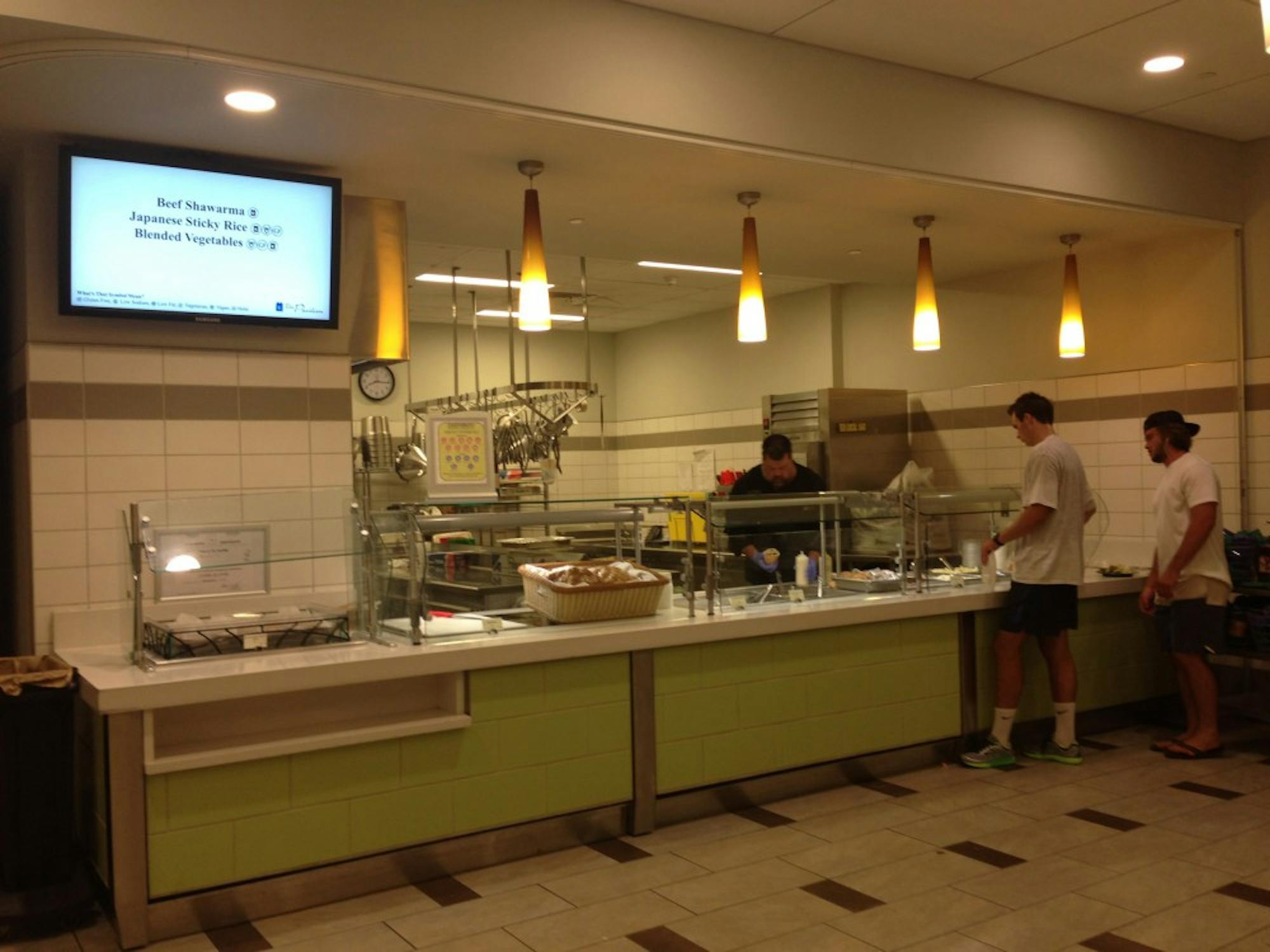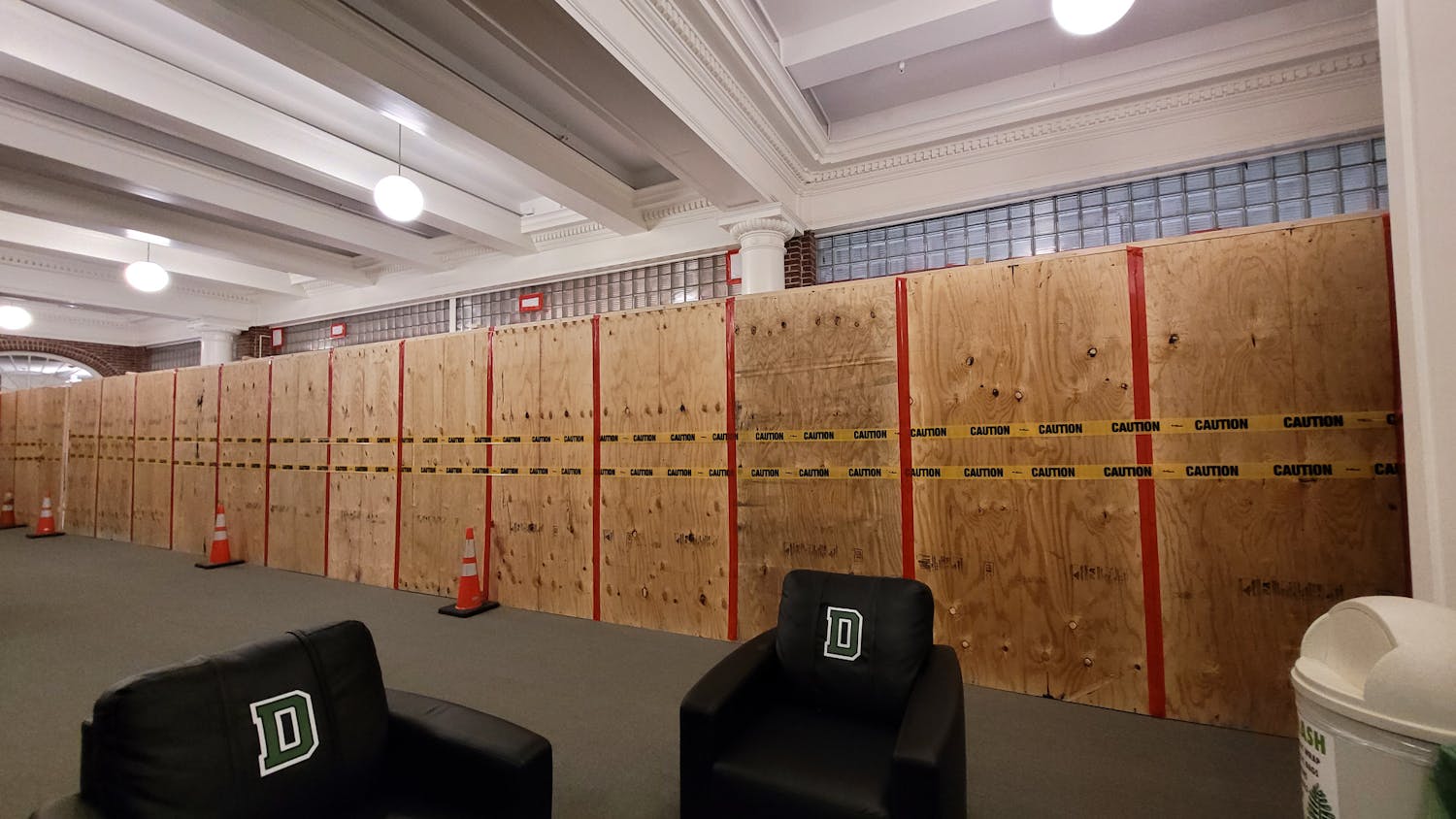Orthodox Jewish students Eliza Ezrapour ’18, Matthew Goldstein ’18, Cameron Isen ’18 and Mayer Schein ’16 are circulating a petition asking the College to provide the kosher kitchen with an Orthodox certification.
This is a stricter standard than the kitchen’s current certification from a service called Tablet K. The petition had 623 signatures as of press time.
Isen said he was unable to eat on campus last year without feeling guilty because the kosher food served at the Pavilion section in the Class of ’53 Commons does not meet widely-held Orthodox standards.
He said the petition is the culmination of a nearly six-month long process of meeting with various school administrators, including former dean of admissions and financial aid Maria Laskaris, director of Dartmouth Dining Services David Newlove and the College president’s chief of staff Laura Hercod.
Ezrapour said the process has been an “uphill battle” fraught with delayed communication and insufficient proposals.
“It’s been frustrating, with so much misunderstanding where there shouldn’t be,” she said. “We felt like we were being pawned off by the administration.”
Isen noted that Tablet-K is recognized by neither Conservative nor Orthodox Judaism.
Rabbi Edward Boraz, the Dartmouth Hillel executive director and Tucker Foundation officer, said that Tablet-K does satisfy Conservative guidelines for kashrut — the body of Jewish law determining how food must be prepared and eaten. He acts as a mashgiach, or supervisor, of the kitchen.
“Tablet-K is somewhat lenient in their rulings — perhaps there is some truth to that,” he said. “But if we’re talking on levels of kashrut, we only use certified products that would be acceptable even to the general Orthodox community, and we do have supervision that would satisfy the Conservative movement.”
Rabbi David Ross Senter, a member of the New Hampshire Board of Jewish Clergy, wrote in an email that he inspected the College’s kosher kitchen on Aug. 25.
“From a Conservative perspective the kashrut at the Dartmouth kosher kitchen meets and exceeds the standards generally implemented by my colleagues,” he said. “From an Orthodox perspective, the only concern is the level of supervision.”
Isen said he does not believe Boraz to be a qualified mashgiach, as under Orthodox guidelines, the mashgiach must practice Orthodoxy, be Sabbath observant and keep kosher under the strictest standards. Boraz was raised in a Conservative Jewish home and was rabbi at a Conservative synagogue prior to coming to the College in 1998.
Boraz said that when the kosher kitchen was founded in 2001, the mashgiach was an Orthodox graduate student who was paid to do the job. Under this form of supervision, the kosher food was “considerably more expensive” than the other options offered, and students were charged per meal accordingly.
Boraz added that to have a sufficient full-time mashgiach right now, the College would need to hire from Boston or Burlington, as there is no local Orthodox community from which to draw applicants. The College is conducting research on costs from the fee for the certification as well, he said.
Isen said that in late July, the group of students who organized the petition received a proposal from the school with several offers, including providing the students an exemption from the meal plan, housing in the Hillel apartments or frozen, triple-wrapped kosher meals. The document also stated that the school would not change the kitchen’s certification. The students were “offended” by the proposal and did not receive sufficient answers to their questions, he said.
“They were essentially ghettoing the Jewish students into specific housing,” Isen said, adding that this option still did not solve their food issues.
He added that he has not received an explanation of why the College will not change the kosher certification.
Asian and Middle Eastern languages professor Lewis Glinert, who is the only Orthodox Jewish professor at Dartmouth, said he has repeatedly questioned dining services and various deans about why kosher dining is not Orthodox certified. He said he has never received an answer.
College spokesperson Diana Lawrence wrote in an email that the next step in this process is for students and administrators to meet for a face-to-face discussion.
Cathy Van Dyke, residential dining director at Yale University, said that requests for kosher offerings are some of the most challenging to meet. At Yale, the kosher kitchen is located in the Slifka Center for Jewish Life, she said. Out of about 7,000 students who eat on campus, there are normally about five or six students who want meals exclusively from the kosher kitchen.
Isen estimated that there are about five students on campus who are directly affected by the lack of proper certification on a daily basis. He added that many Orthodox Jewish students at Jewish day schools are actively dissuaded from applying to Dartmouth because there is no suitable kosher food.
Ezrapour said she attended a Jewish day school and only came to Dartmouth because her guidance counselor strongly encouraged her to apply.
“I came with the hope that I would be able to be an advocate for the Jewish community,” she said. “I don’t think I realized how difficult it would be to be in a place where it felt like I would need to compromise religious ideals on a regular basis. It was definitely a difficult part of [my] freshman year.”
She and the other students have been “touched” by the amount of support they have received, Ezrapour said.
Boraz said he respects and understands the petitioners’ position and wants to find a satisfactory resolution.
“As a rabbi at Dartmouth, this is what we want—we want students to adhere to their positions and find meaning in their faith,” he said.




